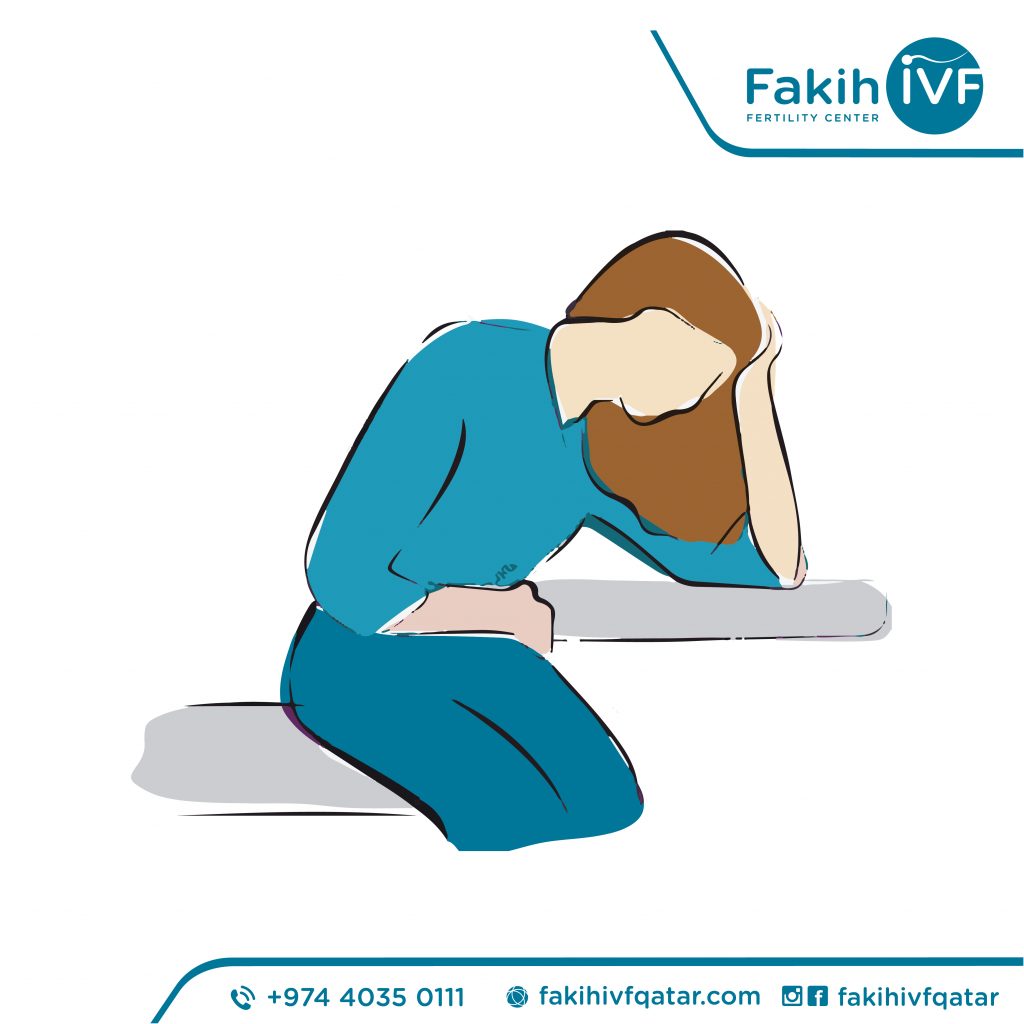8 Myths About PCOS
Thursday, September 24, 2020

Polycystic ovary syndrome (PCOS) occurs due to a hormonal disorder, and it affects women of reproductive age from 14 to 44 years old. PCOS affects the normal balance in the body’s level of hormones, so it might cause problems with conceiving.
Here we will dispel myths about PCOS.
Myth #1: PCOS is a rare condition and cannot be treated.
It is estimated that up to 20 percent of women of childbearing age are affected by this condition. Depending on the symptoms a woman experiences, management of PCOS can include lifestyle modifications, weight reduction, and medical treatment with hormones or medications.
Myth #2: If You Have Cysts You Have PCOS
A cyst is a fluid-filled sac that can develop on the ovaries. Every woman in her lifetime can develop at least one ovarian cyst, most of the time this is painless. Having cysts does not mean you have PCOS. To be diagnosed with PCOS, the following conditions are considered,
-Presence of excess male/androgen hormones which may lead to hirsutism, acne, hair loss.
-Menstruation is irregular.
– Multiple follicles/cystic ovaries.
Myth #3: You Did Something to Cause It
While the exact cause of PCOS is unknown, one thing is certain: You are not to blame. Doctors don’t know the exact cause of PCOS. But it is believed that high levels of male hormones prevent ovaries from producing hormones and making eggs. Genes, insulin, and resistance are some factors linked to excess androgen (male hormones) production.
Scientists believe that insulin might play a role in the body’s increased androgen production. And insulin resistance is most common in women who are overweight or have an unhealthy diet. Also, studies have shown that PCOS runs in families, hence women whose mothers or sisters have PCOS are more likely to be affected by this syndrome.
Myth #4: Every Woman with an Irregular Menstrual Cycle has PCOS
PCOS can be one of the causes of irregular menstrual cycle but they can also be caused by other health conditions or lifestyle factors, like an over or underactive thyroid gland. Hence, it is not entirely accurate to say that every woman with irregular periods has PCOS.
Myth #5: PCOS causes weight gain or prevents weight loss
Overweight and obese women can help balance their hormone levels by losing weight. Lifestyle changes, such as eating healthily, being active and avoiding smoking, improve the way your body uses insulin and, therefore, regulates your hormone levels better.
Although women with PCOS are more likely to be overweight than women without the condition, the relationship between PCOS and weight remains unclear. While many women with PCOS report difficulty losing weight and perceive a greater susceptibility for weight gain, weight management interventions, such as diet and behavior change programs have found women with and without PCOS lose the same amount of weight.
Myth #6: The cure for PCOS is the birth control pill
Unfortunately, there isn’t a “cure” for PCOS, the birth control pill does nothing to cure, prevent, or fix PCOS or any other hormone disorder. It can be helpful as a management tool for symptoms, but ultimately it just masks the problem. Treatment is based on using medication to correct hormone levels, but at this point in time, people with PCOS should expect to manage their condition long-term. Because treating PCOS is based on treating symptoms, your doctor can help you switch medications based on your needs.
Myth #7: You Can’t Get Pregnant if You Have PCOS
This isn’t true for everyone. PCOS is a common cause of infertility. The hormonal problem affects the ovary’s ability to release an egg to be potentially fertilized for pregnancy. But you can still get pregnant, both naturally or after fertility treatments. Give your body a chance by talking with your doctor about fertility treatment. A number of medications can stimulate ovulation, which is the main issue that women with PCOS face. Other fertility treatments for women with PCOS include assisted reproductive technologies such as IVF.
Myth #8: Women with PCOS have pregnancy complications
Most women think that since polycystic ovary syndrome causes difficulty in conceiving, it also causes gestational complications. That is true to some extent as women with polycystic ovary syndrome who get pregnant can suffer from high blood pressure and gestational diabetes; however, they do not suffer any serious issues because of that. As opposed to what was thought earlier, they do not suffer from the risk of miscarriages as well.







